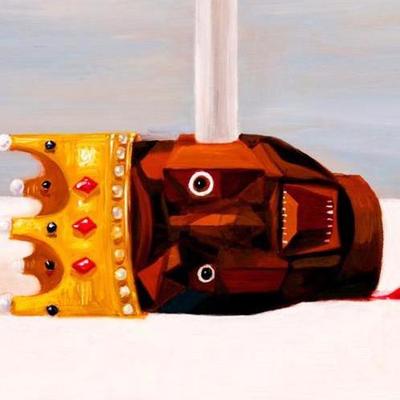Kanye West dropped his new album, The Life of Pablo, on Tidal on Feb. 13.
On the afternoon of Feb. 11, millions gathered at their local movie theaters and on their computers to watch Kanye West début his long-awaited seventh solo album — finally titled The Life of Pablo after numerous name changes — at Madison Square Garden in New York.
The album, like West, is perfectly imperfect. On the surface level, the album is littered with contradictions; what might be West’s most beautiful song, the stunning post-gospel opus “Ultralight Beam” is followed immediately by what might be the most outright cringeworthy line of his career: “If I f— this model, and she just bleached her a––, then I’ma get bleach on my T-shirt, then I’ma feel like an a––.”
On Pablo — an album whose title itself is fractured, simultaneously suggesting Picasso, Escobar, and St. Paul — West is concerned with the idea of fragmentation on the macro and microcosmic scales.
The Life of Pablo might be the world’s first work-in-progress as a completed project. Pablo isn’t scared to fail. Further, it is even hyper-critical of its own misgivings.
This staggering self-
awareness is best seen on “I Love Kanye,” an ingenious a cappella track that takes aim as much at West’s own ego as it does at the Internet meme subculture created by it. Tethered to this self-awareness is an emphasis West places on showing us the relationship between construction and deconstruction.
The first lines of “I Love Kanye” arrive after the beat to the previous song, “Freestyle 4,” reduces itself to a lone lingering synthesizer, which acts as superfluous residue of the once-complete instrumental. The transition from unadulterated synth to unaccompanied vocals serves to reveal to us the very process of the album’s sonic construction.
Like on My Beautiful Dark Twisted Fantasy, West draws inspirations from many genres to craft the sonic environment of Pablo.
On “Waves,” a rigorously structured, anthemic composition featuring Chris Brown on the chorus, disintegrates as the song reaches its close, leaving nothing but a stuttering synth reminiscent of experimental electronic musicians Oneohtrix Point Never and Aphex Twin.
Our understanding of West’s latest work must come from another artistic genre: painting. Like one interpretation of the “Pablo” in the title suggests, the sonic canvases constructed by West — indulgent, gratuitous, and sublime — merit comparison to the works of Picasso and his fellow Cubist masters.
These works, like Pablo, are at once — when looked at as whole — intricate and beautiful constructions of their subjects and — when looked at in parts — merely canvases lathered with an over-application of paint and contradictory points of view.
West positions himself as subject and object, protagonist and antagonist. We are at once sympathetic with his never-ending search for redemption, both on a spiritual and a social level, and put off by his ironic and somewhat paradoxical disregard for our acknowledgment, as seen in the infamous Taylor Swift line on “Famous.”
Rather than tearing apart the album, however, this sense of fragmentation actually serves to unify the apparently disparate parts, synthesizing them into one deliciously indigestible final product.
“Any rumor you ever heard about me was true and legendary,” he says on the stellar Kendrick Lamar-featuring “No More Parties in LA.”
Pablo is West’s way of pulling back the curtains and giving us a peek into his creative process. In doing so, we see the simultaneously hyper-attentive and near-schizophrenic mind of the world’s greatest and most misunderstood musical talent.
We see a jackass, unable to overcome his ego, forever falling victim to its demands. We see the father, wanting only to provide for his children. We see the husband, who is scared of losing the love of his life as the result of some rash, irreversible action. We see the creative revolutionary, grappling with corporate white America in a desperate attempt to make an impact on the world.
Most importantly, however, we see the man — imperfect, a contradiction, like the rest of us, who wears his flaws on his sleeve and his struggle on his sneakers.
Rating: 10/10



